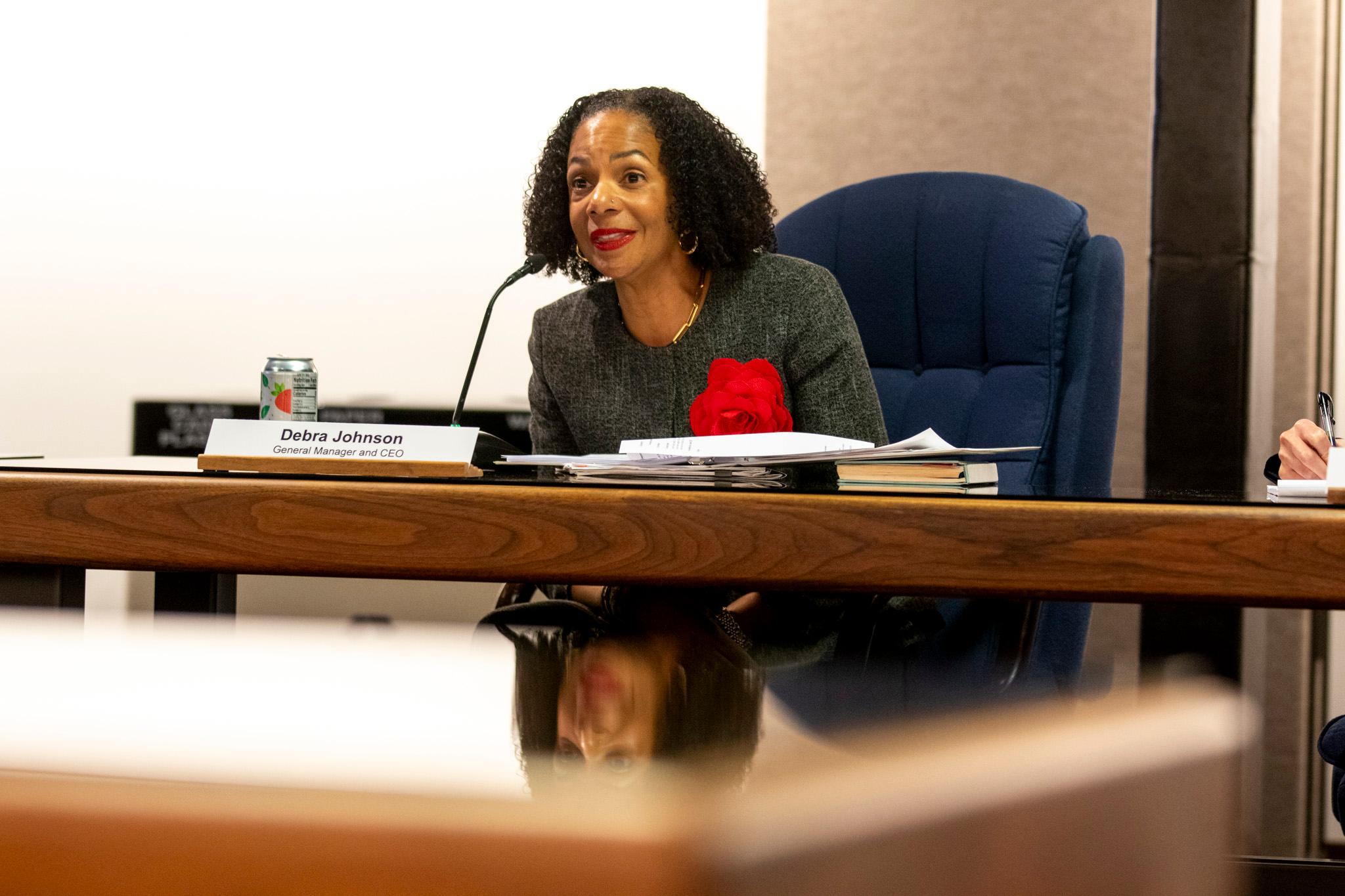A year ago, low test scores, poor morale and dwindling enrollment plagued Lake Middle school in northwest Denver. Parents began pushing for change. So the district embarked on a controversial plan to reconfigure the school and give students more options. A year later, Denver's superintendent calls the changes a “middle school renaissance.” Here’s a transcript of Jenny Brundin's report.
Reporter Jenny Brundin: Judith Melendez enters her old school one last time. The 8th grade graduate is taking a break from the teachers, parents and school officials who are gathered outside, celebrating the school’s recent test scores. She stands in front of her locker.
Melendez: (sigh) Big memories. (laugh)
Reporter: Her memories of 8th grade are good ones. It wasn't that way in her 6th and 7th grades at Lake Middle School.
Melendez: Well, the teachers weren't that motivated because they thought we didn't have no chance or something. We had really bad grades.
Reporter:It was the same situation at nearby Skinner Middle school. Denver Public Schools Superintendent Tom Boasberg says they were struggling.
Superintendent Tom Boasberg: They were struggling in terms of academic growth, they were struggling in terms of enrollment, and we were seeing many families in the area choosing to go elsewhere instead of those two middle schools.
Reporter:The district developed a plan to reform Skinner and bring in charter schools.... one of them to be located inside the same building as Lake Middle School. Arturo Jimenez is vice-president of Denver's board of education and recalls the sharp reaction to the plan.
Jimenez: Where they would have two different cultures within the same building and that was something that the community absolutely reacted to and could be very divisive and hurtful to the neighborhood.
Reporter: Many residents didn't want a charter. They simply wanted to improve the school they already had. Jimenez says there were also disputes over curriculum. A compromise was hatched: phase out Lake Middle school and create a new school there, reform Skinner, and bring in two new charter schools.
(Boasberg speaking to a crowd)
Reporter: More than a year and half later, teachers, students and parents turned out on a hot, sunny day this week to celebrate all the new schools' CSAP results– those are the state tests that measure student progress in math, reading, writing and science.
Boasberg: We saw especially at our sixth grade level where this year's group of sixth-graders outpaced last year's group of sixth-graders by double digits in math and writing and large increases in reading as well. (applause)
Reporter: How did the schools do it? Some new principals and teachers. Raising and clarifying expectations. Giving teachers planning time and support. Reducing suspensions. Elza Guajardo is principal of the 8th grade at Lake International School. She said there's still much work to be done. But she’s proud that 7th grade writing scores jumped more than 9 percent and 8th grade math scores climbed nearly that much.
Guajardo: We were successful because it was an increase, and to me, that is what is important, that we moved as a school, we moved our students.
Reporter: For Guajardo, it started with a vision accepted by teachers, parents, and students. That ALL students would go to high school and be prepared for college or work. She says the school created a culture of trust and professionalism, one that gave teachers a voice. Another big difference, she said, was that DPS top officials paid attention.
Guajardo: They gave us the resources the tools to meet the needs of every student.
Reporter: Parents also played a big role in the success of the school......even going on stage at an assembly the week before CSAPs, giving students relaxation and breathing tips. Yolanda Armenta is the mother of Judith, the eighth grader who just graduated from Lake International.
Armenta : (speaking in Spanish)
Reporter: Armenta says every day, parents focused on what they could do to help: making sure their kids got to school on time, telling them that if they were confused, to ask teachers questions. Judith says she could feel the difference, from the day she walked into eighth grade.She says teachers had higher expectations, taught more difficult things, gave more homework, and helped kids after school.
Melendez: I was shocked at first, because like big change, we got used to it after awhile because we had to.
Reporter: For Arturo Jimenez of the Denver school board, all the controversy a year and a half ago paid off.
Jimenez: We were able to change that anger and frustration in the community into action and positive engagement and it all worked out.
Reporter: And it's paid off for Judith Melendez. She scored advanced in reading and writing on the CSAPs this year. She's scared about high school, but for now, as she looks at her middle school locker one last time, proud of what she achieved.
Melendez: Leaving the school and leaving as a good role model and having these good grades and showing that we have pride in who we are and what we're here to learn.
[Photo: CPR]









